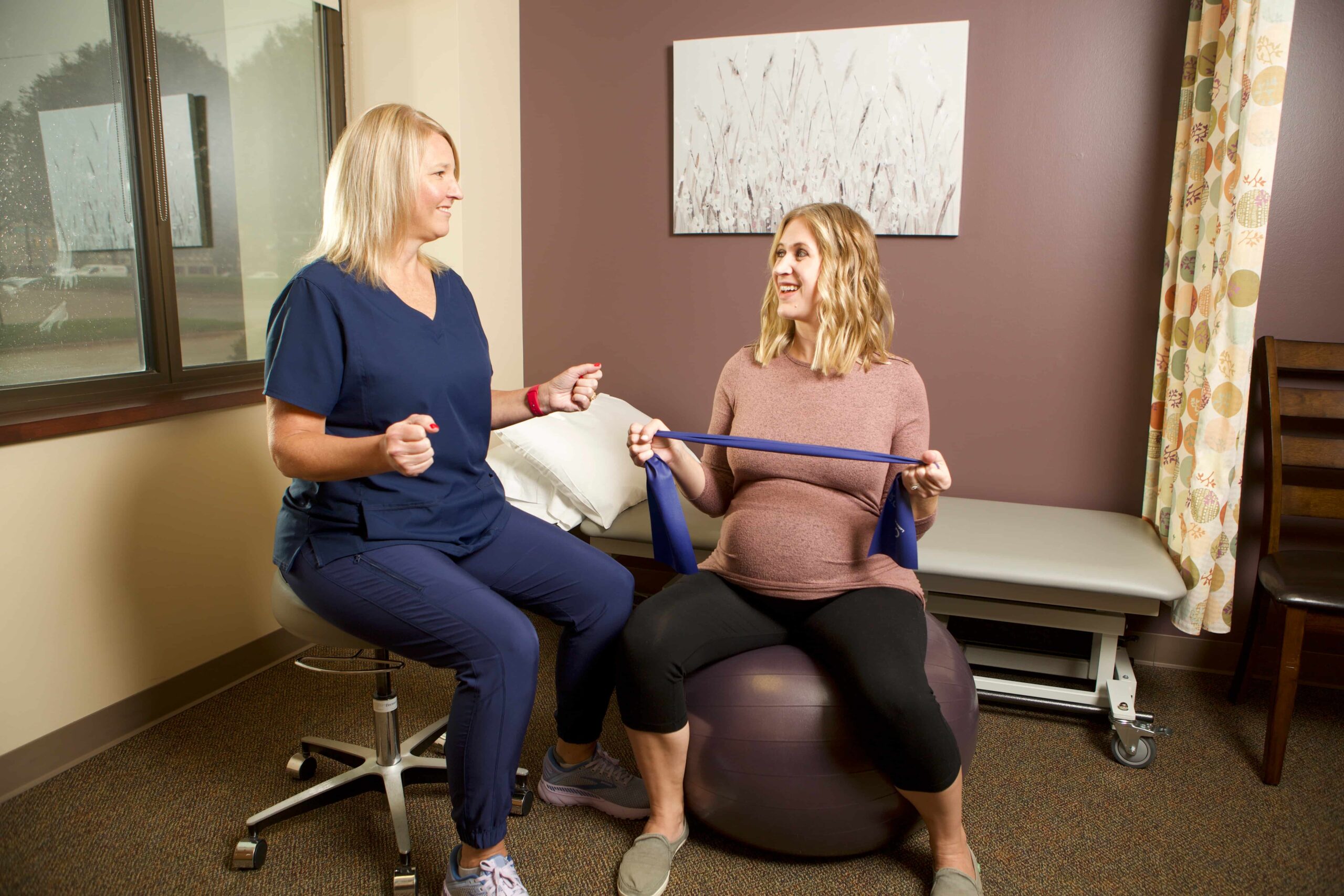Pelvic floor health is an important part of a woman’s life. As women, we go through many changes that come with aging. Pelvic physical therapy may help to improve your strength, movement, and pain management.
What is the pelvic floor?
The pelvic floor is made up of a group of muscles that support the bladder, bowel, and reproductive organs. The muscles provide tone to soft tissue around the anus, vagina, and urethra. Sexual tone is reliant on these muscles for good sensation and pain-free intercourse.
 Not just Kegels
Not just Kegels
Kegel exercises can be a great tool for many women, whether you’re wanting to reduce symptoms of urinary incontinence or if you’re just wanting to maintain a healthy pelvic floor. However, it’s important to note that Kegel exercises are not for everyone. Although, some people may do more harm to their pelvic floor by doing too many Kegels.
A trained physical therapist can evaluate, assess, and determine the appropriate treatment for home exercise. They can also decide whether Kegels will benefit you or not.
Pelvic floor physical therapy for pregnancy
Pregnancy has its own issues relating to the pelvic floor which may include urinary leaking and pain. During pregnancy, it is normal to experience little aches and pains with the development of your baby, but these do not need to limit you.
Pelvic floor treatment can help strengthen and support your baby and prepare you for delivery and quicker recovery. Physical therapy can also add support to limit pelvic and back pain. If your pain has caused you to miss work or avoid normal activities, then a physical therapist can be beneficial.
Postpartum physical therapy
After childbirth, your body has gone through numerous changes and has begun gradually returning to a pre-pregnancy state. With fluctuating hormones and the healing of soft tissue, your body is recovering. Physical therapy can help you go back to your typical activities safely and quickly.
We can also teach you the appropriate exercises for regaining abdominal tone, avoiding urinary leaking, and returning to pleasurable sexual health. If you have a C-section scar or perineal scar, physical therapy can speed healing and ease the pain.
Menopause
Hormonal changes during menopause can cause vaginal atrophy and weaken the pelvic floor. This can also cause vaginal dryness and soft tissue changes that result in painful penetrative intercourse. Physical therapy for pelvic health can help strengthen or improve mobility depending on your needs to allow transitioning into next phase of life with less pain and prevent prolapse or incontinence.
“Nothing is the same since my baby was born.”
Are you feeling some vaginal heaviness, leaking urine or stool, having painful intercourse, or having trouble regulating your weight? Our therapist will evaluate what’s going on and rehabilitate the pelvic floor and abdominals to enjoy life.
“Why does my pelvis always hurt?”
Pelvic pain exists in many forms and can include multiple muscle groups. You might feel pain in your hips, low back, thighs, or abdomen. Vaginal burning or difficulty having bowel movements can occur. These can be a result of tension in your pelvic floor. If you have any pain, tell your provider and get some relief.
What can I expect in a pelvic floor physical therapy appointment?
Our physical therapist will listen to you and perform an evaluation. Following assessment, a treatment plan will be developed with you to include home exercises. There are a wide range of treatment options that will target specific musculoskeletal issues to allow you to perform your normal daily activities.
Appointments are typically 40 minutes long. Treatment may include manual techniques of massage, joint mobilization, and myofascial release. Postural stretching and strengthening, core strengthening, proper body mechanics and sleeping postures, behavioral changes in diet or fluids.
We work with patients according to their specific needs, whether it’s to improve strength and motor recruitment of the pelvic floor muscles, or to encourage relaxation of muscles.
We are here to minimize pain, not cause pain, but sometimes a procedure can be uncomfortable while we are trying to achieve goals. We will help you manage any pain that occurs, including ice, heat, electrical stimulation, or ultrasound.
The frequency of appointments varies according to diagnosis. Incontinence is usually 4-5 visits a week, and a week apart. Treatment for pain can be 1-2 times a week for 8 weeks.
We like to note a positive change in 2 weeks, but physiological changes in soft tissue strength and mobility is 6-8 weeks.
Meet our Physical Therapists
JoAnn Green, MS, PT, has worked in Women’s Health since 2002. She has trained under Women’s Health experts, Hollis Herman and Kathe Wallace. This includes biofeedback training, treatment of urinary incontinence as well as other diagnoses including pelvic pain, constipation, fecal incontinence, pregnancy-related problems, postpartum care, and pelvic floor dysfunction.
Dr. Emily Fortman is a native of Rochester, MN. She received her undergraduate degree in Human Physiology from the University of Iowa in Iowa City. She received her Doctor of Physical Therapy degree from Wingate University in January 2021. Following her education at Wingate, she has studied pelvic floor physical therapy through Herman And Wallace and continues to grow her knowledge in the field through continuing education.
